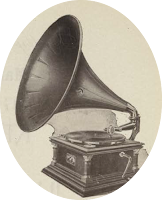Assad Dakroub: Muslim Musician and Arabic Teacher in the Midwest

Assad Dakroub When immigrants to the United States began to arrive from Greater Syria in the 1880s, their numbers were relatively small, but they were noticeable. As these numbers increased, and Ottoman and former Ottoman emigrants left in earnest, those who arrived were largely poor, on the verge of becoming poor, and primarily Christian (Orthodox, Melkite, and Maronite). Arab Muslim immigrants to the United States represented only ten to twenty percent of new arrivals from the Levant, if that. Consequently, the majority of those musicians who recorded music in the 1920s and have been featured on the Midwest Mahjar identified as Christian, while a couple identified as Druze (Amer Kadaj) or Muslim (Prince Mohiuddin). Assad Dakroub was a minority among minorities in the first wave of Arab immigration to the US – he was a musician or singer, Muslim, and educated. Some of the places he settled give us a peek into smaller Syrian/Lebanese Muslim communities bu...
